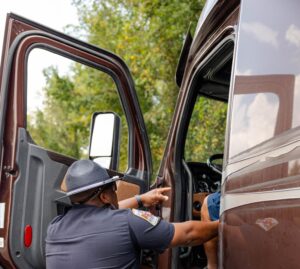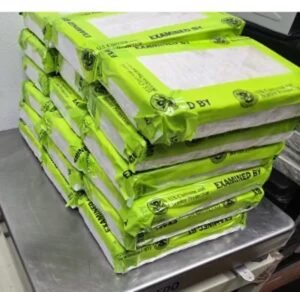WASHINGTON — A new report from the U.S. Chamber of Commerce’s Institute for Legal Reform says the trucking industry is under siege by litigation.
High-dollar verdicts in trucking accident cases — often referred to as nuclear verdicts — accelerated in size starting in the 2000s but have skyrocketed over the last 10 years, despite a decreased rate of serious trucking crashes over that timeframe, according to the report.
“Moreover, with the inflation of verdicts and settlements, the search for deep pockets is expanding and the circle of potential defendants is widening,” the report states. “This paper documents the dramatic increase in trucking accident litigation awards across the board, including an analysis of recent verdicts and settlements to document the continuing trend.”
A review of 154 trucking litigation verdicts and settlements from June 2020 through April 2023 reveals a mean plaintiffs’ award of $27,507,334 and a median award of $759,875.
For settlements, the mean award was $10,608,219, and the median award was $210,000. Although the means are driven up by a handful of extreme verdicts and settlements, trucking companies and insurers alike must account for these significant risks.
The paper then discusses the impact of these inflated verdicts on the industry, consumers and the economy.
The research also explores the various factors driving this litigation trend, most of which are tactical litigation tools that drive up verdicts.
These tactics include:
• Medical referral networks and inflated billing practices.
• “Reptile” courtroom tactics by plaintiffs’ lawyers. Reptile tactics can be used to present evidence alleging a trucking company’s negligence despite the company admitting responsibility for the driver’s negligence, if any. By doing so, the jury may “assess the (trucking company’s) liability twice or award duplicative damages to the plaintiff.”
• A widening circle of defendants to reach deeper pockets.
• An ambiguous and exploitable standard of care for trucking operations.
The paper then notes the most problematic jurisdictions across the country for trucking litigation. Some jurisdictions are notoriously worse than others, making solutions ever more critical for the consumers in those jurisdictions.
After examining these trends and the factors behind them, the paper concludes with a number of solutions intended to prevent the unreasonable inflation of trucking industry verdicts and settlements, while preserving a civil justice system that effectively provides for prompt, just, and reasonable compensation for those involved in trucking accidents.
These solutions, according to the report, would:
• Require transparency in claiming medical damages. Legislation should limit medical damages to reasonable and customary amounts actually paid instead of inflated amounts billed. State legislatures or courts should ensure evidence of referral relationships indicating bias or conflict of interest is disclosed and available to juries. Law enforcement and professional ethics regulatory bodies should take a more active role in prosecuting fraud or unethical behavior, respectively.
• Prohibit the presentation of inflammatory arguments if a defendant trucking firm stipulates responsibility for a driver’s negligence. To ensure awards are tied to reasonable compensation, policymakers and judges should ensure that evidence and arguments intended to inflate the verdicts do not get presented to the jury. Courts and legislatures should generally prohibit presentation of evidence on derivative theories of negligence where a trucking company has stipulated responsibility for its driver’s negligence, if any. Allowing such evidence inflames juries and promotes another, duplicative assessment of fault against a company.
• Create reasonable caps on non-economic damages. Non-economic damages, e.g., compensation for pain and suffering, are admittedly difficult to quantify but are an increasingly large portion of verdicts and settlements than more objective damages, like medical expenses for treatment.
• Prohibit the practice of “anchoring.” Courts should ensure non-economic damages are supported by evidence and not arbitrarily chosen. Judges (and state legislatures if judges fail to) should prohibit unsubstantiated anchoring, where an award suggestion is argued without evidence simply to plant the number in the jury’s minds.
• Permit evidence of non-use of seat belts by plaintiffs in damages calculations. The duty to mitigate damages has long been a component of the common law of torts. With seat belt use mandatory in 49 states, states that do not currently permit evidence of the non-use of seat belts in damages calculations should do so. The goals of a properly functioning civil justice system are not advanced by compensating for serious injuries that may have been avoided or mitigated by compliance with a seat belt law.
• Clarify the standard of care for motor carrier selection and failure-to equip claims. Policymakers and judges should defer to federal agencies with a safety remit in deciding whether contracting with a motor carrier is reasonable or whether a truck is properly equipped.
Ultimately, the report notes, “A multi-pronged effort is necessary to address the negative impacts of … actions while still providing compensation for reasonably incurred and medically appropriate care.”
“The trucking industry strives for safe performance, but accidents that are the fault of the trucking company, although infrequent, do happen,” the report states. “In those instances, the civil justice system should work to efficiently provide a reasonable compensatory award.”
The Trucker News Staff produces engaging content for not only TheTrucker.com, but also The Trucker Newspaper, which has been serving the trucking industry for more than 30 years. With a focus on drivers, the Trucker News Staff aims to provide relevant, objective content pertaining to the trucking segment of the transportation industry. The Trucker News Staff is based in Little Rock, Arkansas.














